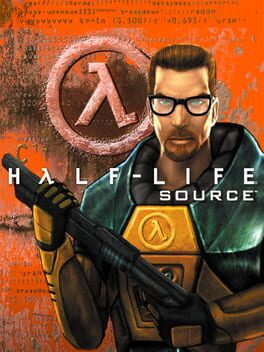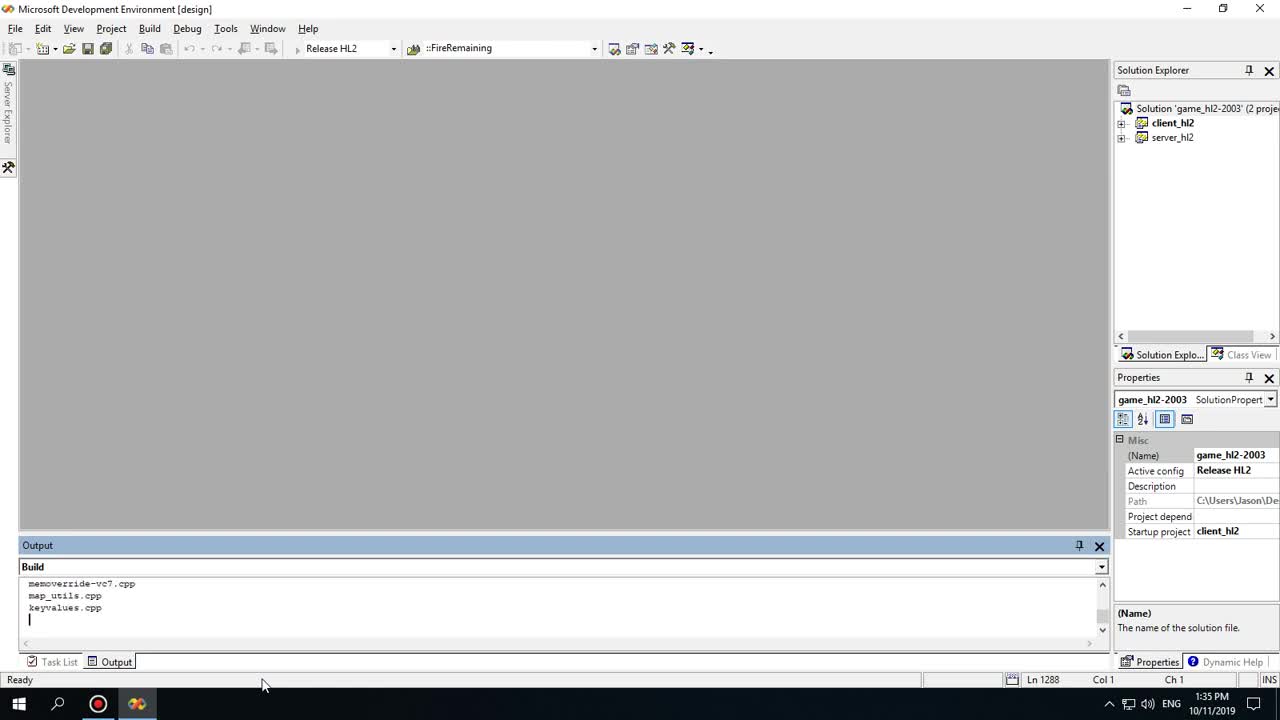
- HALF LIFE SOURCE CODES HOW TO
- HALF LIFE SOURCE CODES INSTALL
- HALF LIFE SOURCE CODES UPDATE
- HALF LIFE SOURCE CODES FREE
HALF LIFE SOURCE CODES FREE
The free Community edition of Visual Studio can be downloaded here: However, this guide assumes you're using the latest version of Visual Studio (2022 at the time this page is updated), whereas 2010 is a little different, but mostly only when you're installing - after that, it's much the same. This is for 64-bit Ubuntu/Debian, you will need to change this command to suit your own distro if required.īased on your decision on which repository and Visual Studio version you'll be using, these instructions will be different.
HALF LIFE SOURCE CODES INSTALL
This command will take care of that: sudo apt-get install build-essential gcc-multilib g++-multilib libgl1-mesa-dev.

However, you do need to install some things, if you don't already have them. Git clone Visual Studio Linux/Mac users: Obviously this doesn't apply to you. Once you've chosen which repository to get, use Git to clone it by running this on the command line (substitute the URL for the repository you want to use): OSX likes to break things and Valve doesn't like to fix them, so it's possible Half-Life just doesn't run at all anymore due to OSX dropping support for 32-bit applications. Mac users: Just follow the Linux instructions and hope it works. It's recommended that you use the halflife-updated repository as well.
HALF LIFE SOURCE CODES UPDATE
Linux users: Valve's default repository requires some files to be updated in order to work properly, existing code might require an update as well on modern GCC/G++ versions. Cons: It's not official (but it's trustworthy, you can see the changes that were made)įrom here on, these guides will assume you'll be using the halflife-updated repository - however, all of the changes will work in any version of Visual Studio.Pros: Visual Studio 20 support, modern GCC/G++ support.Solokiller's halflife-updated repository.Cons: You must use Visual Studio 2010, or go through the migration process to a recent Visual Studio version manually, Linux requires some files to be updated before they'll work and updating the existing code might be required on modern GCC/G++ versions.The summary of your options is basically: Each tutorial has a branch in this fork of halflife-updated, which is maintained by Penguinboy for the purposes of this guide. This is the repository that these guides will be referencing. TWHL member Solokiller has such a fork called halflife-updated which updates the project to support new versions of Visual Studio and GCC/G++, as well as some changes to reduce the number of warnings or potential issues. A lot of people have forked the Valve repository and made various updates to it - such as fixing the code and project files to work properly with newer versions of Visual Studio.

However, the project is configured for Visual Studio 2010 only, and the newer versions are easier to find and use. Valve's official SDK is hosted on GitHub - if you want to start from the official base, then this is the code you need. If you would like to learn more about using Git, visit: The Half-Life SDK sudo apt-get install git on Debian/Ubuntu, adapt the command if you use another Linux distribution). On Linux, you probably already have Git installed - otherwise, use your distribution's package manager to install it (e.g. Make sure Git is installed on your computer before you continue.
HALF LIFE SOURCE CODES HOW TO
If you've done any programming, you probably already know how to use Git, or at least are familiar with it.

On other platforms, use the editor of your choice, as the approach is quite a bit different to Windows. With that out of the way, let's get started!įirst of all, you'll need to get your programming environment set up. Search online to find the right tutorial for you, but here are some resources to get started (these are taken from a Google search, quality not guaranteed): However, if you have a good grasp of higher level languages such as JavaScript, C#, or Java, you should be able to adjust to C++ reasonably quickly. Knowledge of C++ is quite useful, as that's what the SDK is coded in. Want to learn programming? There are many online guides and tutorials available.

It's expected that you already have programming experience when reading these guides. Please note that this is not a tutorial on how to read or write code.


 0 kommentar(er)
0 kommentar(er)
